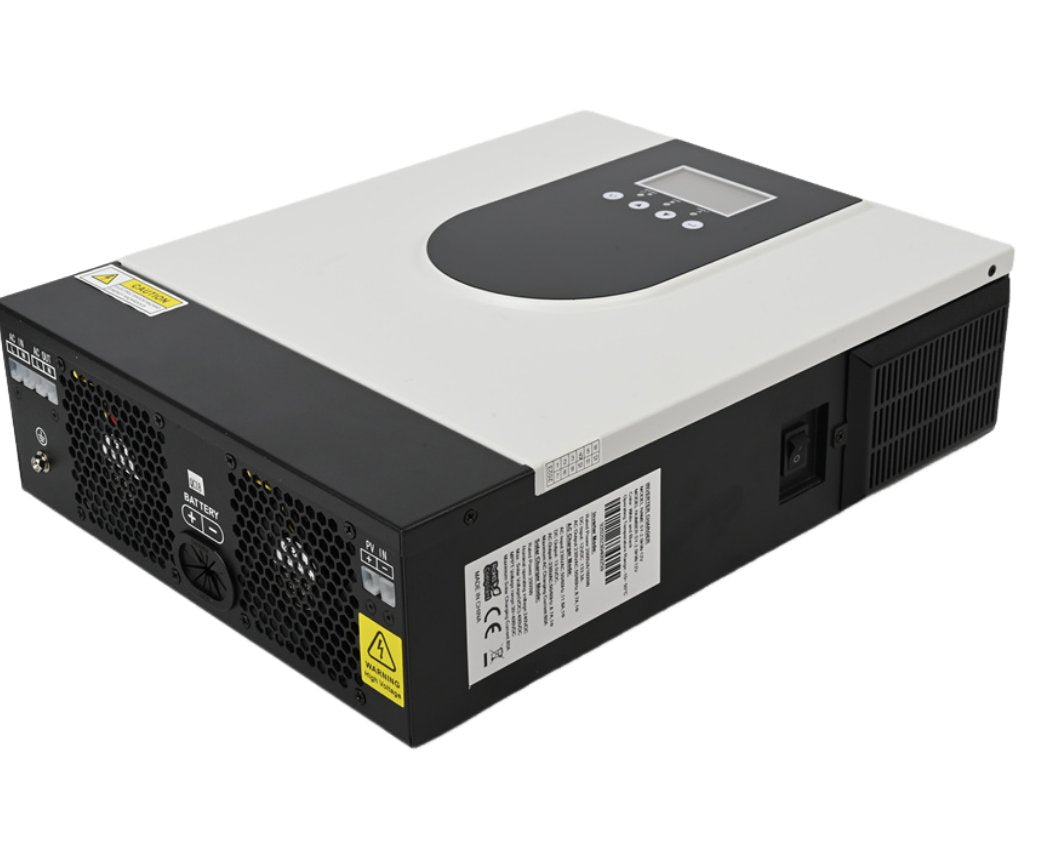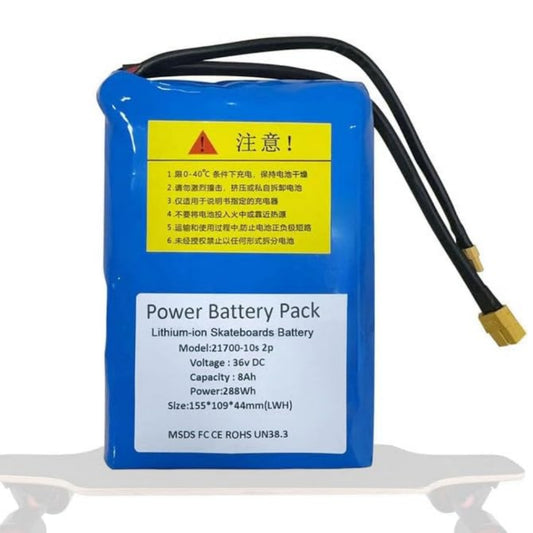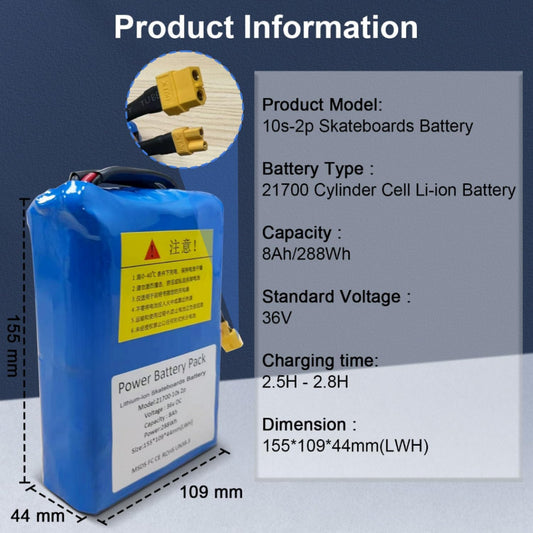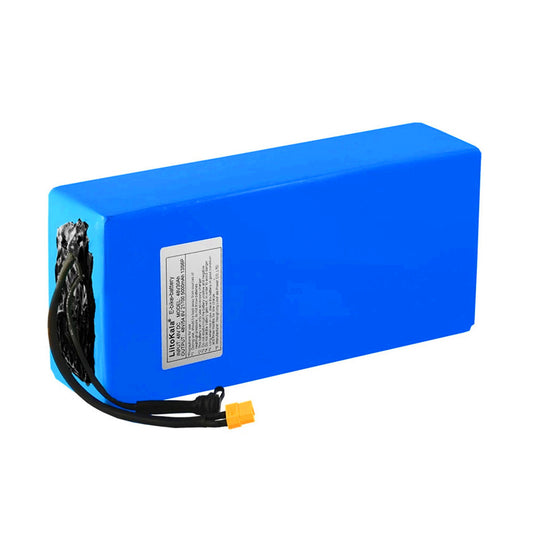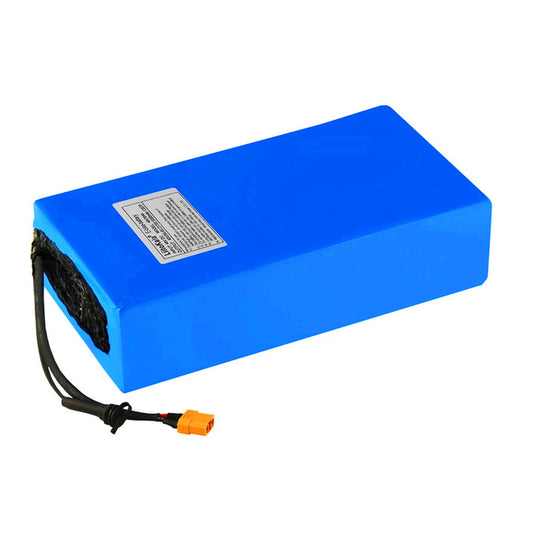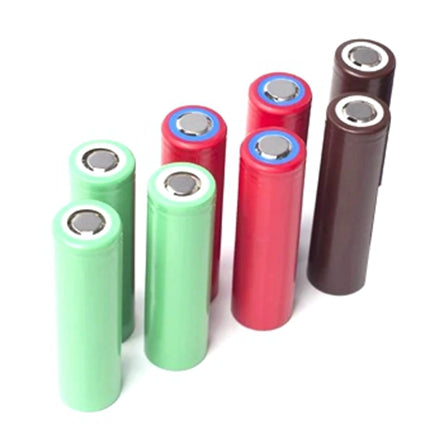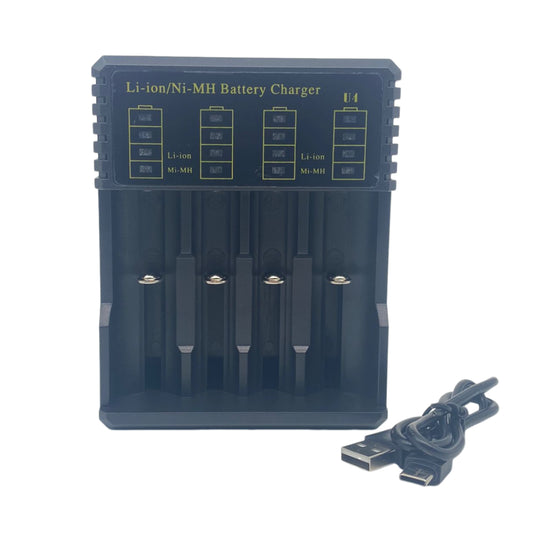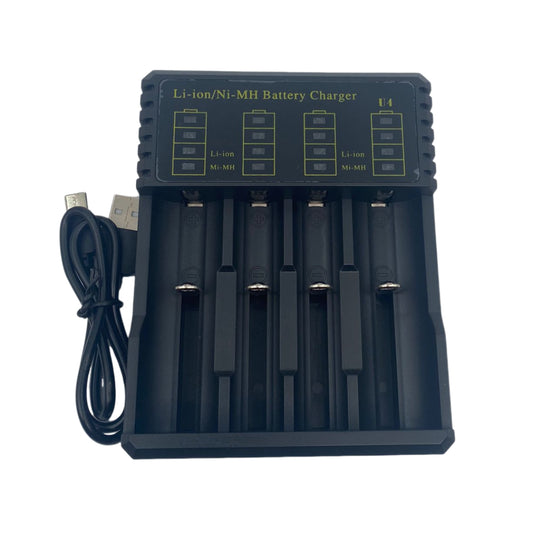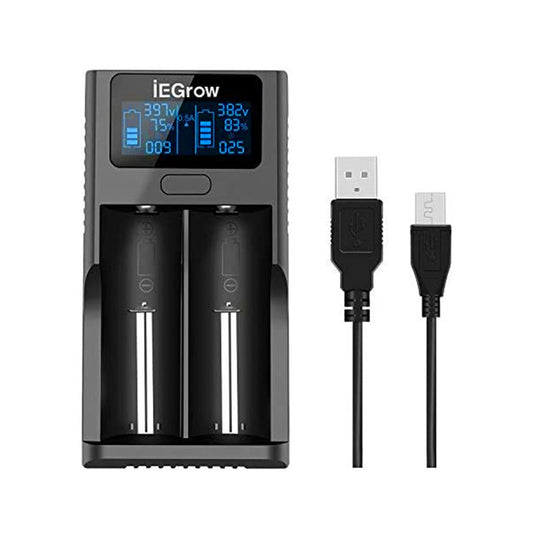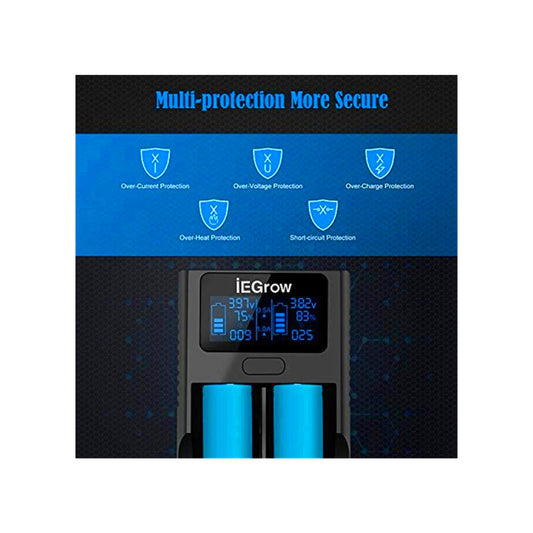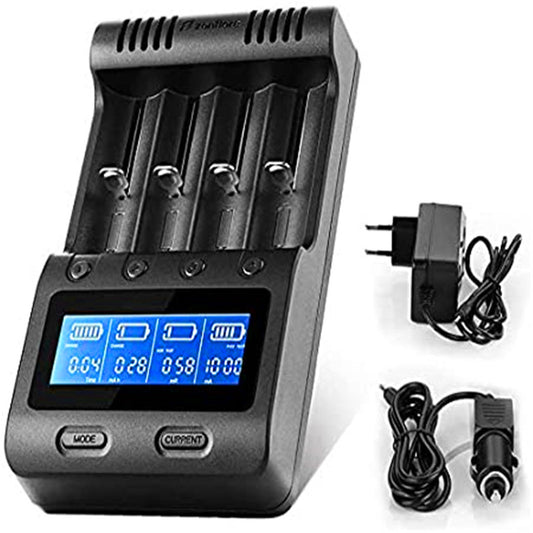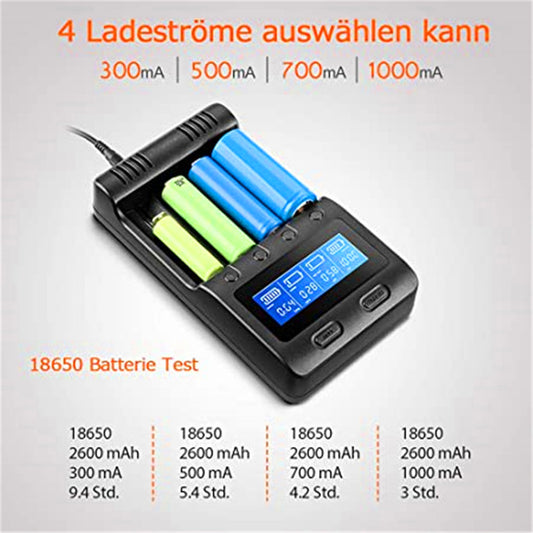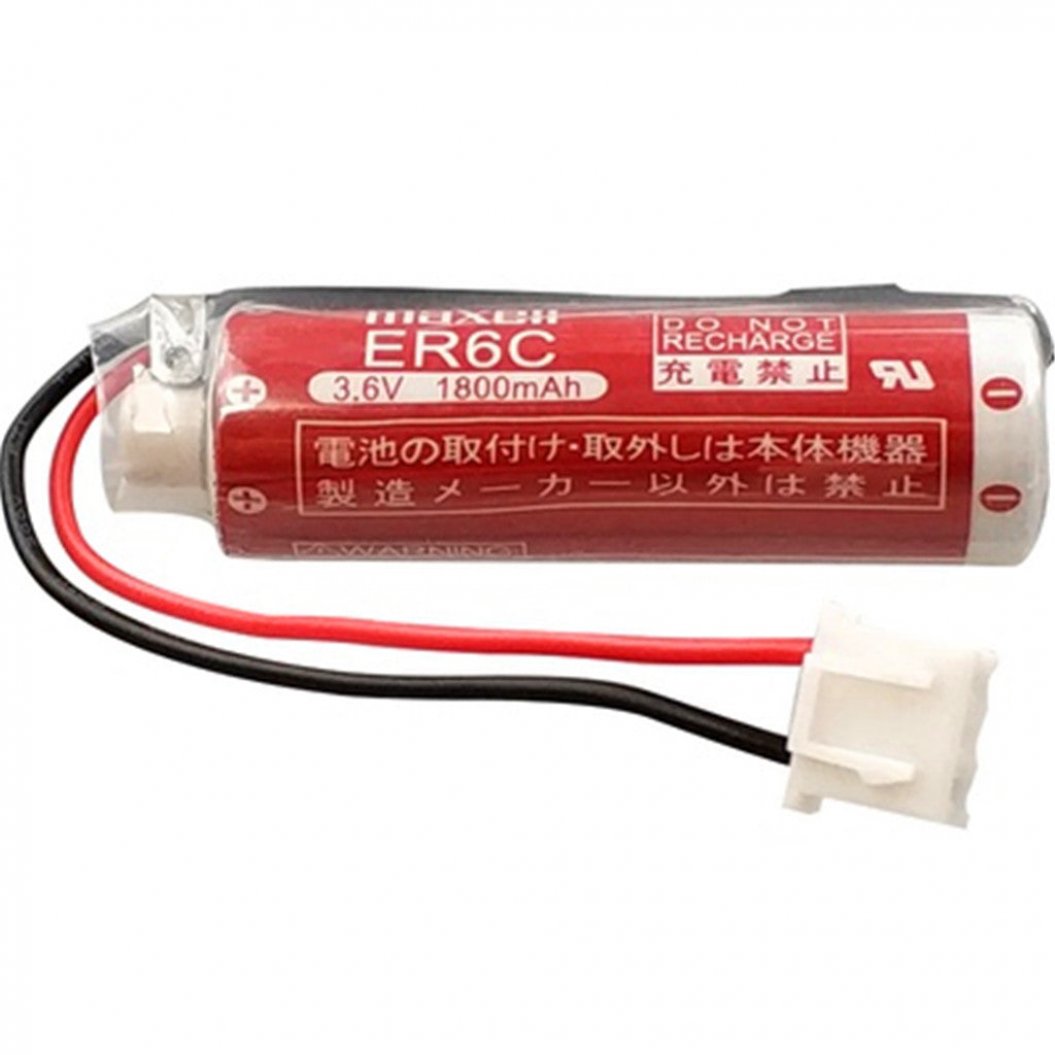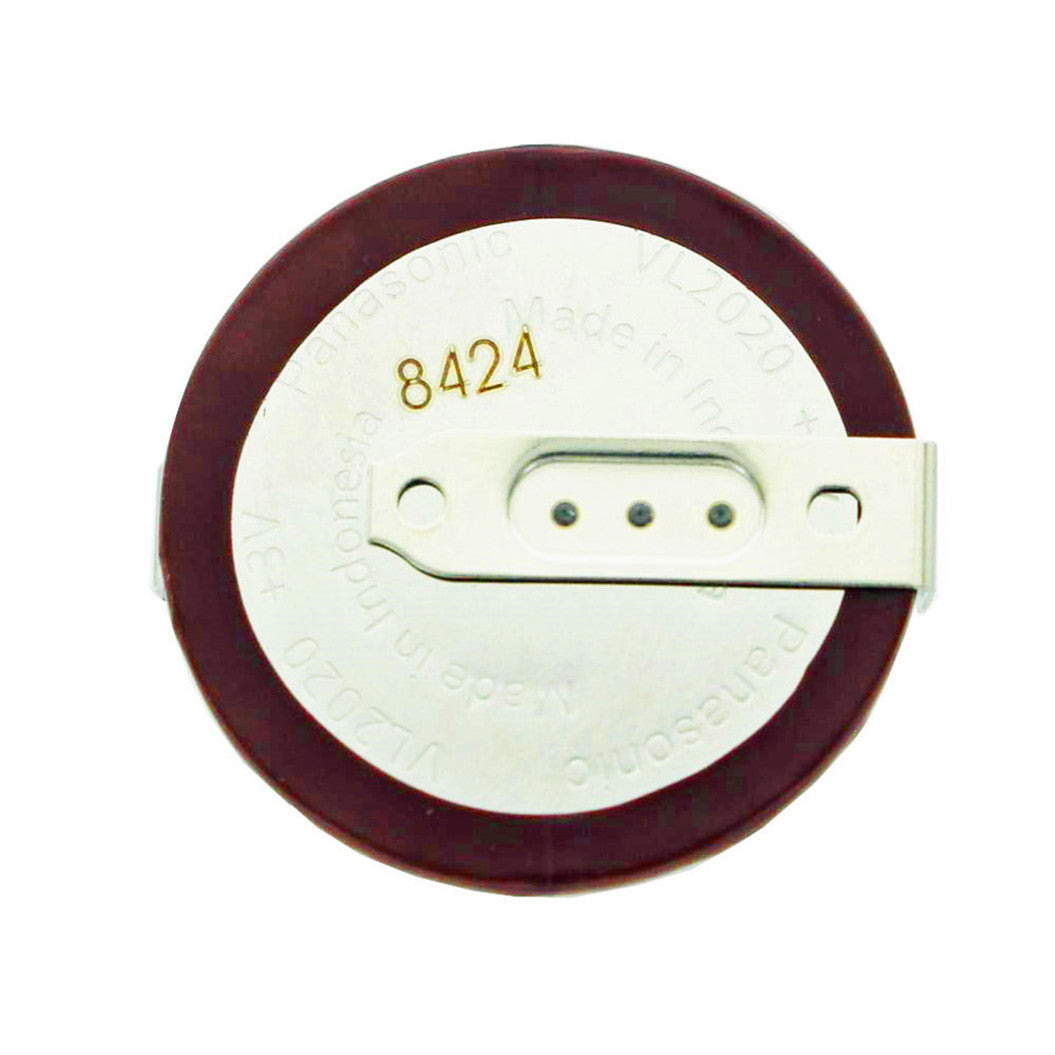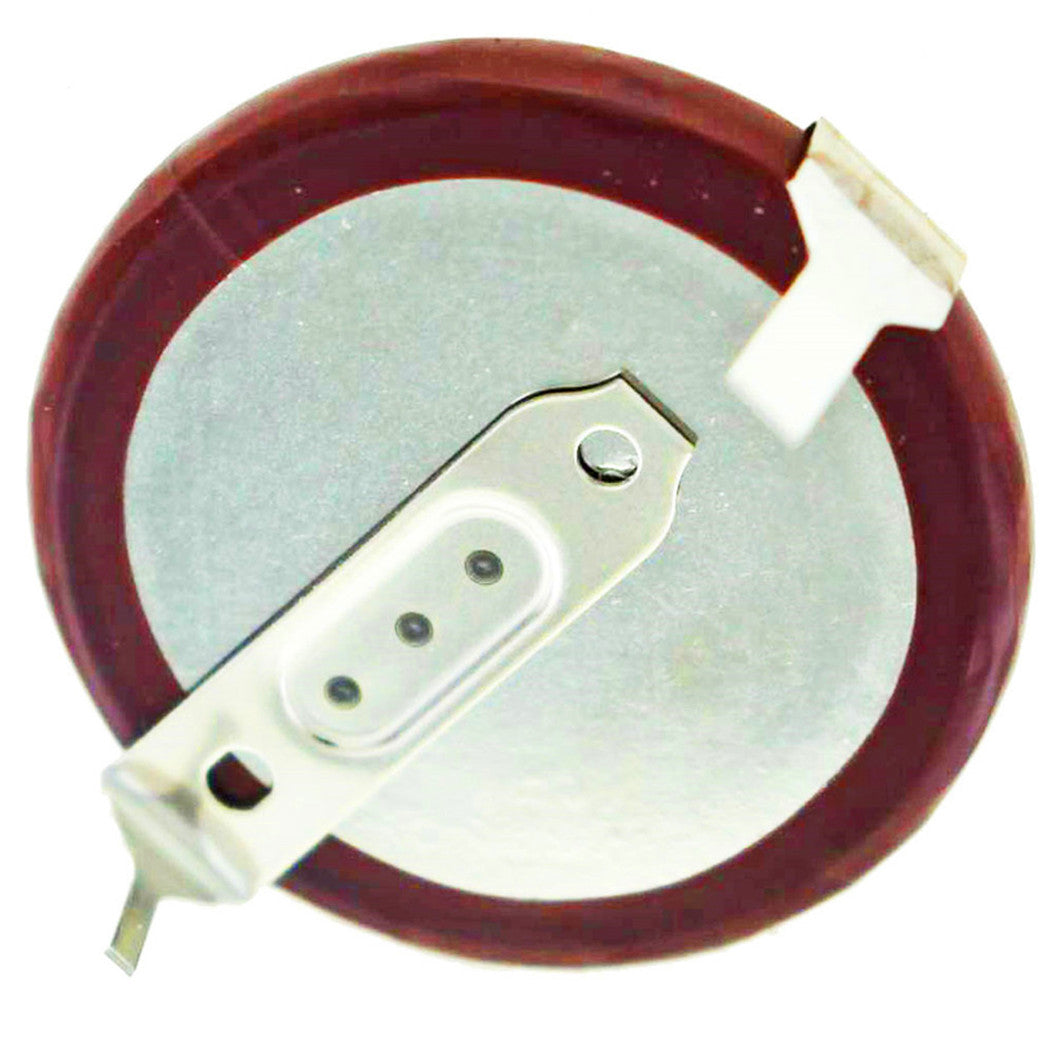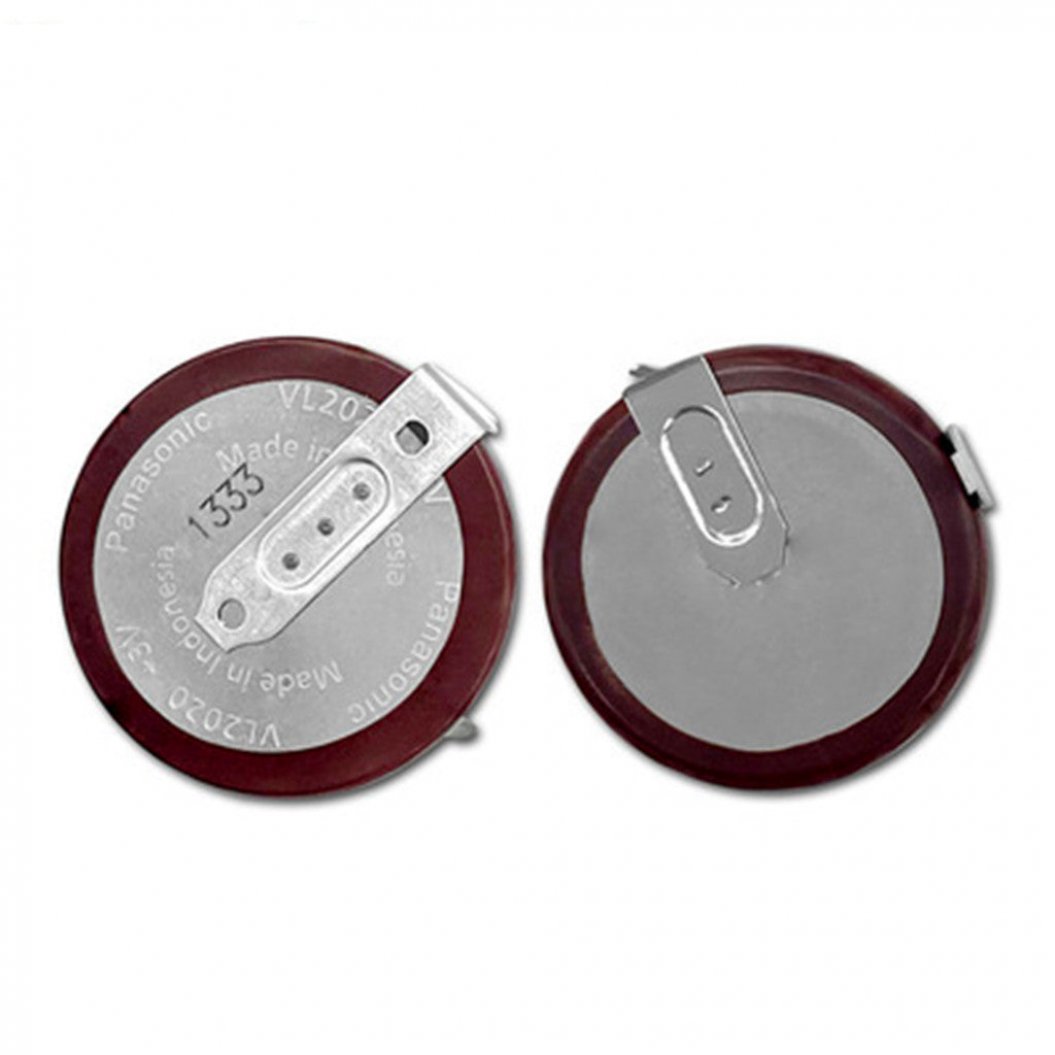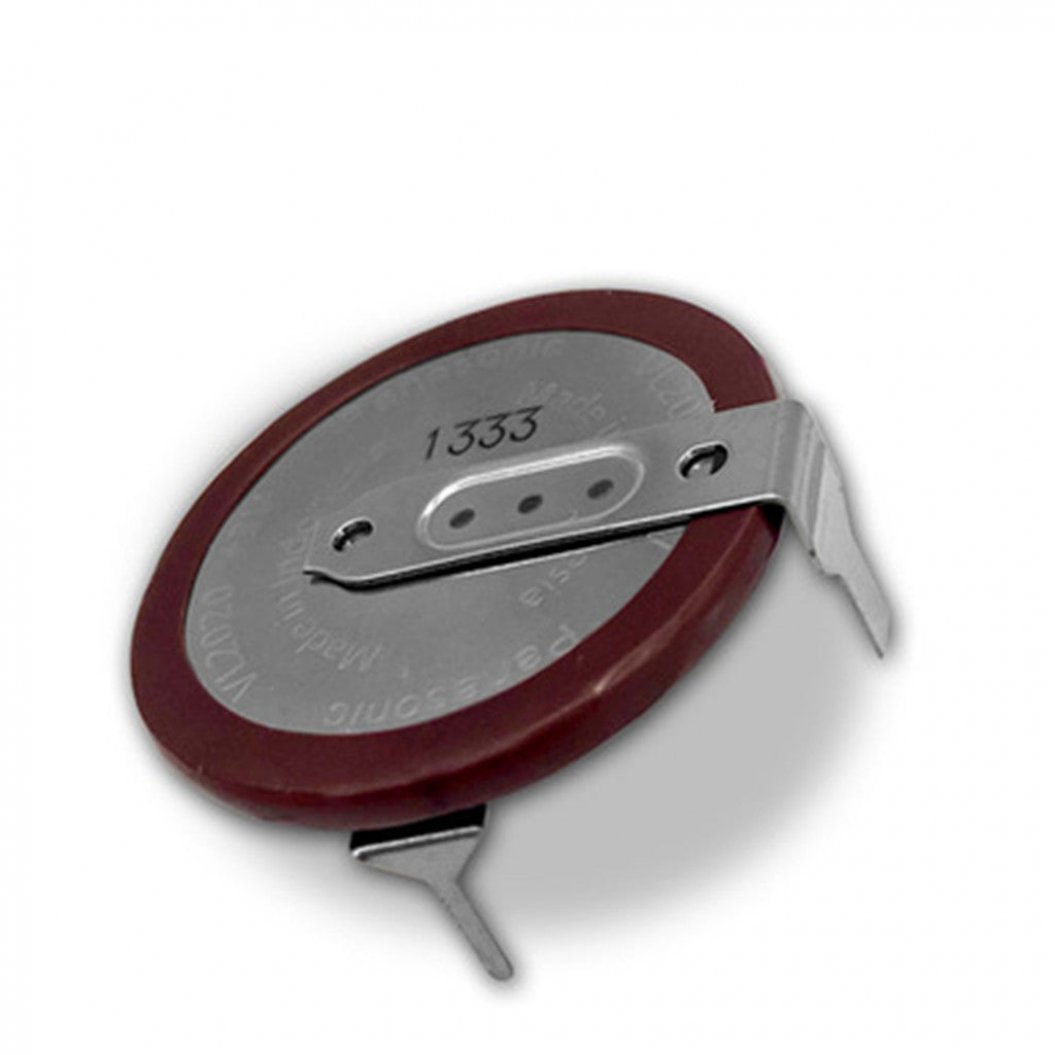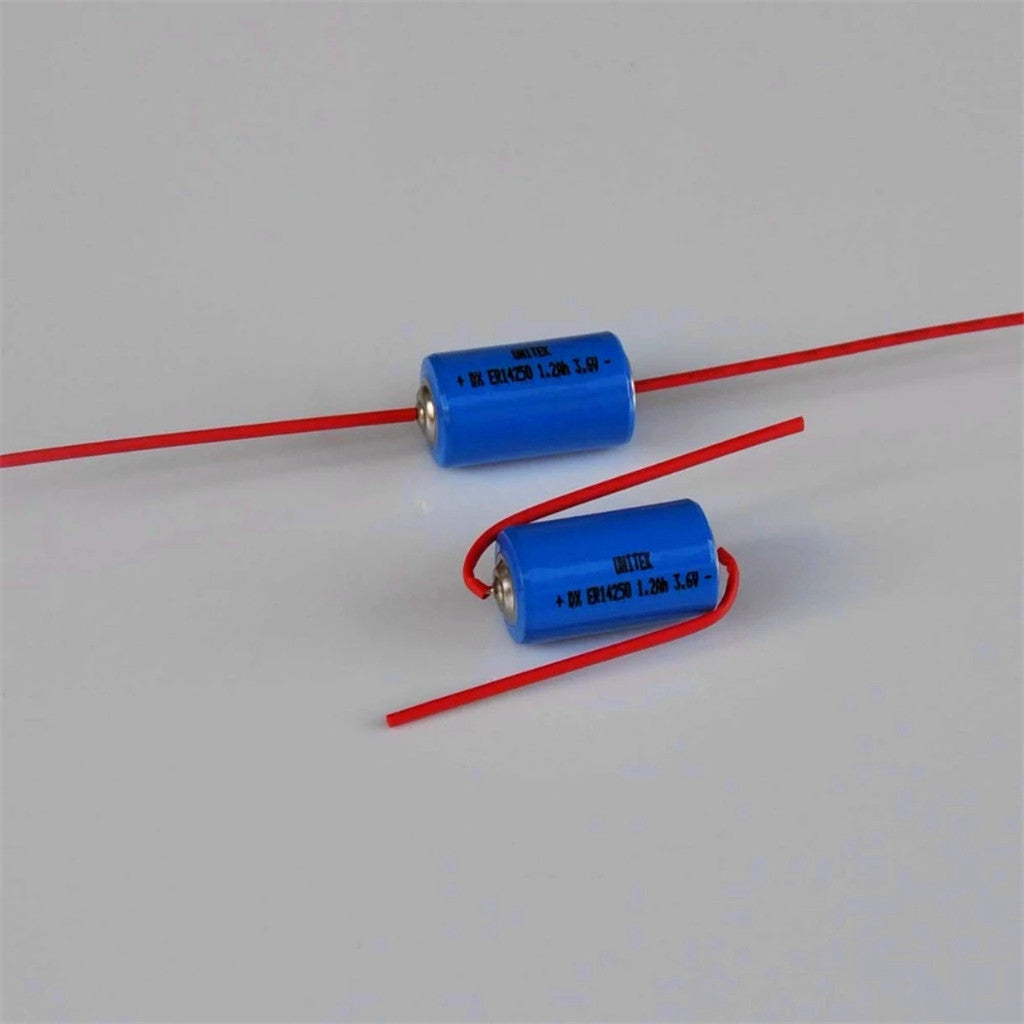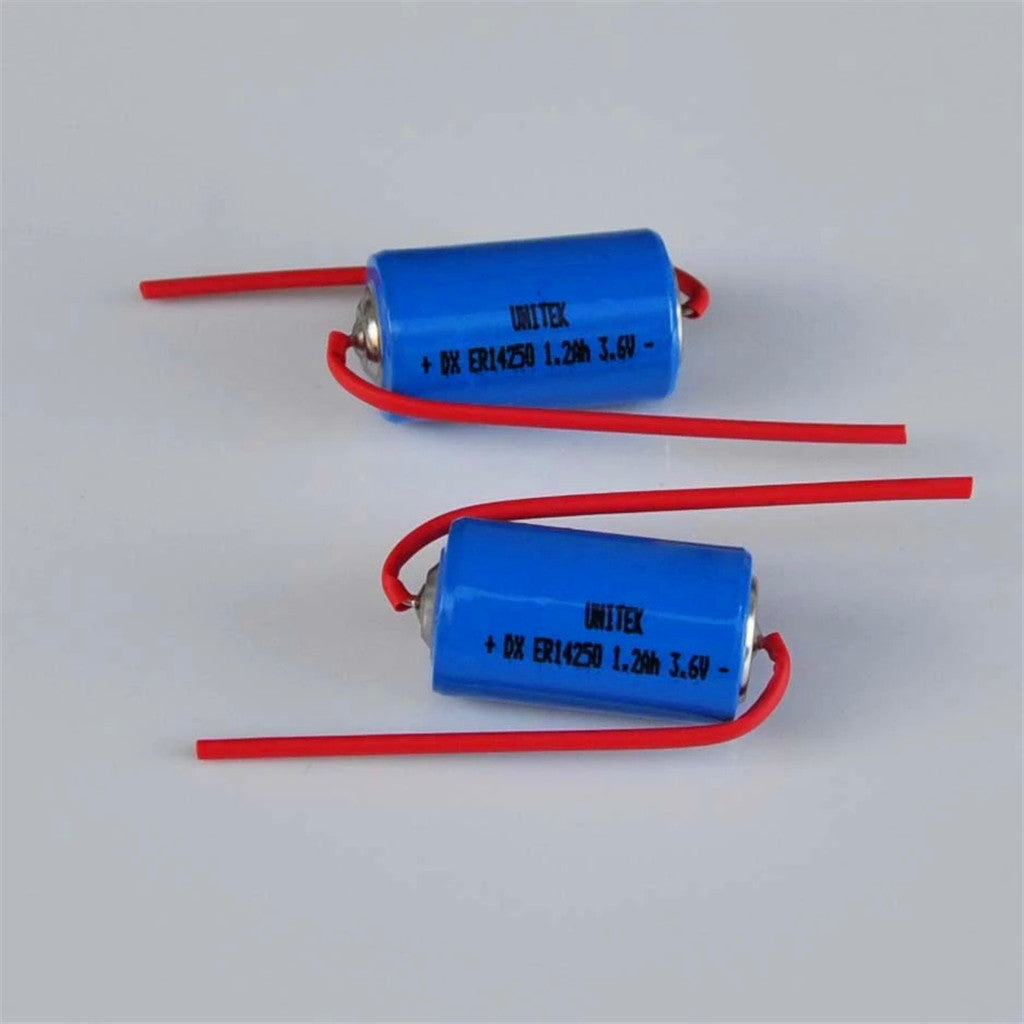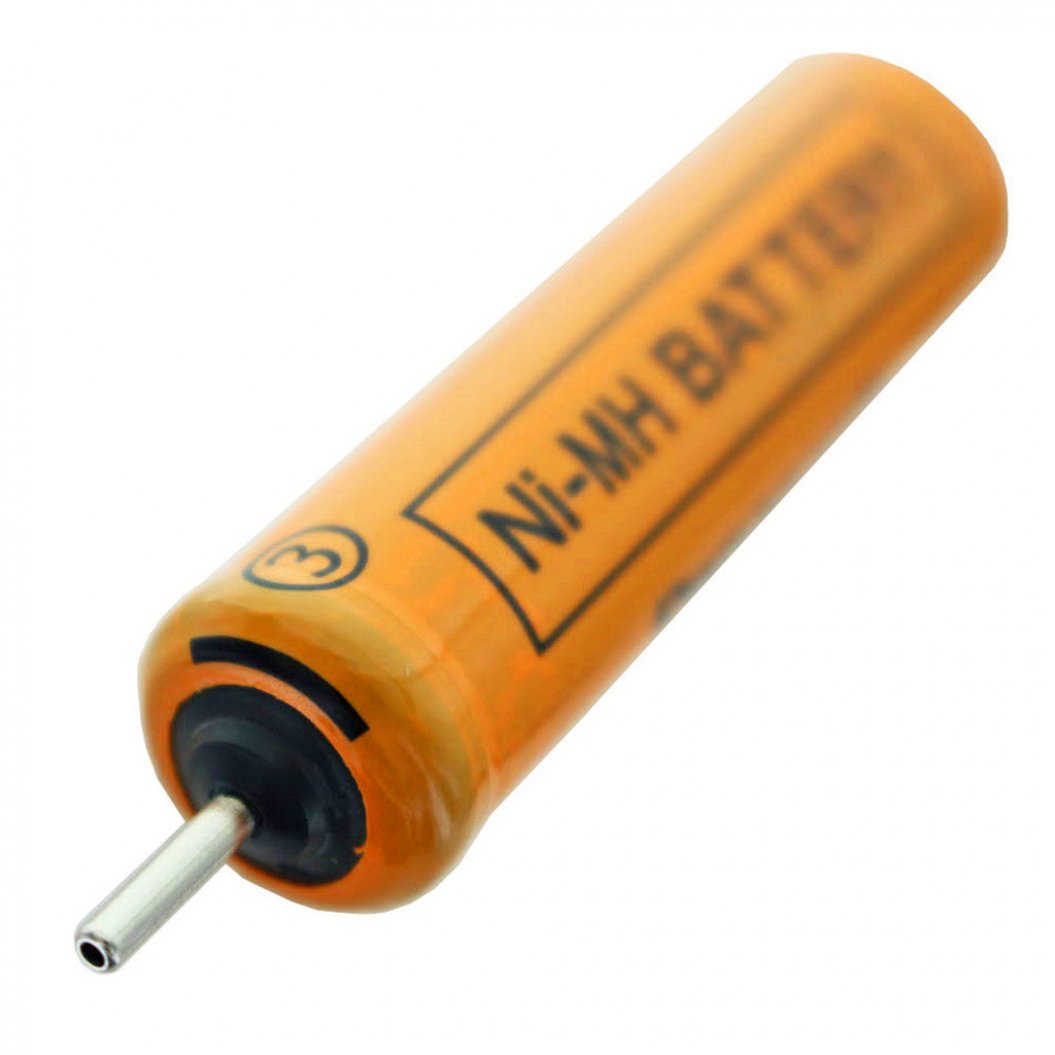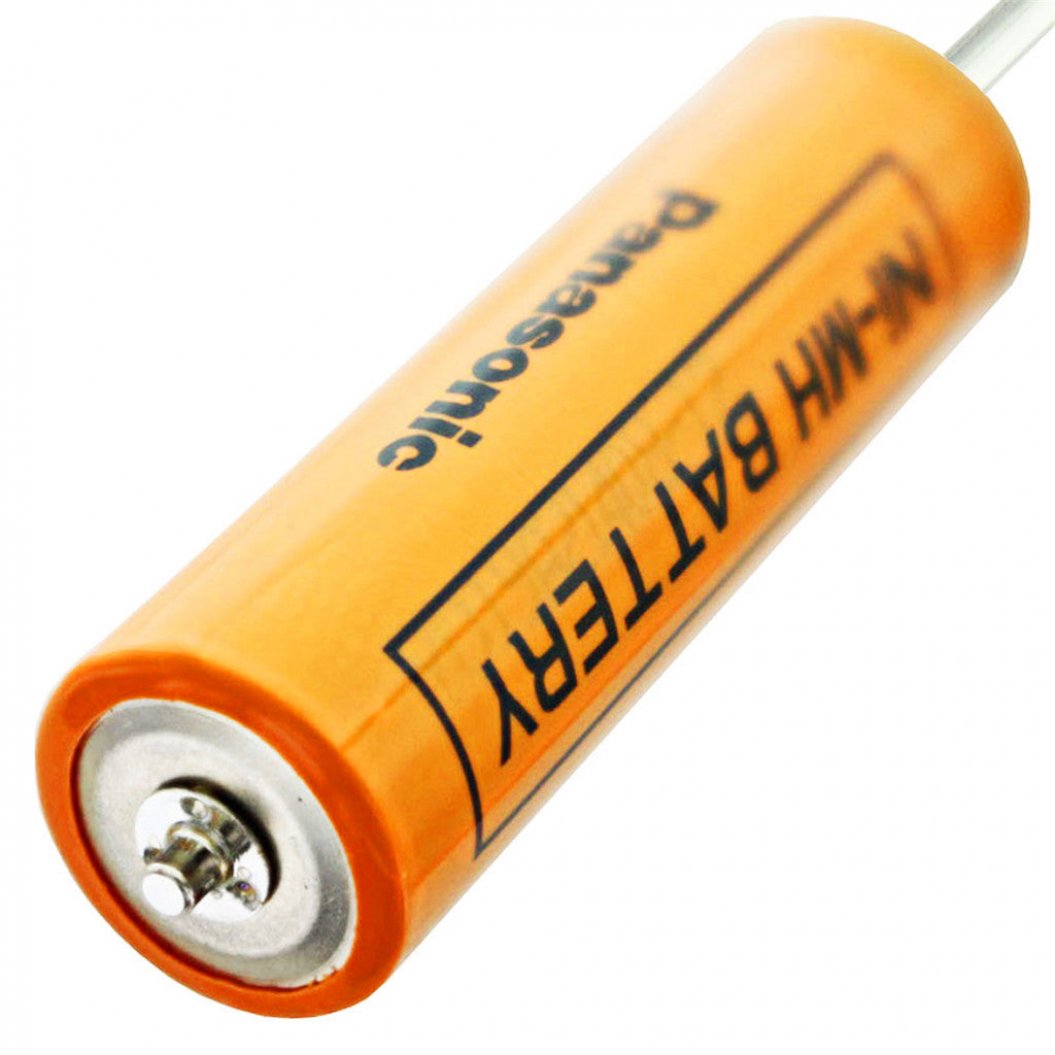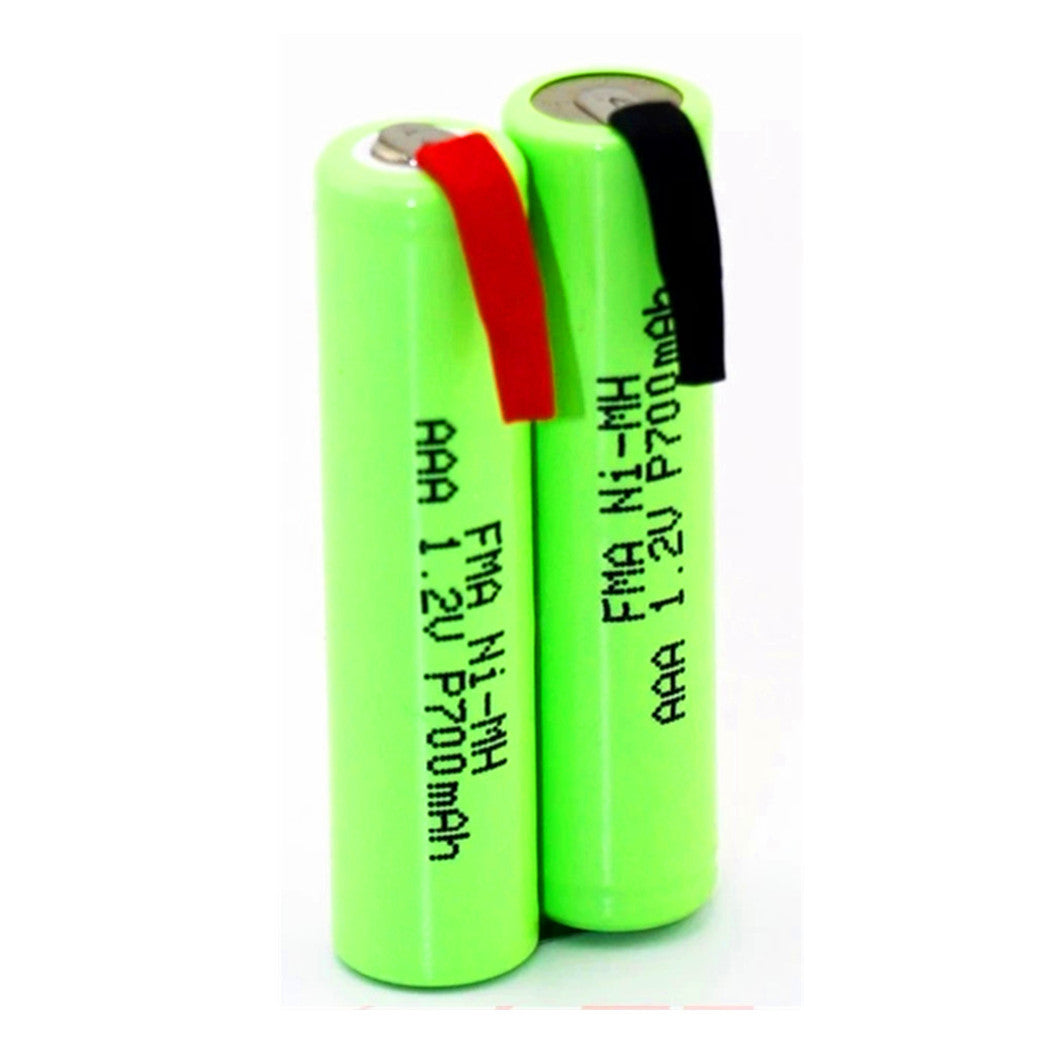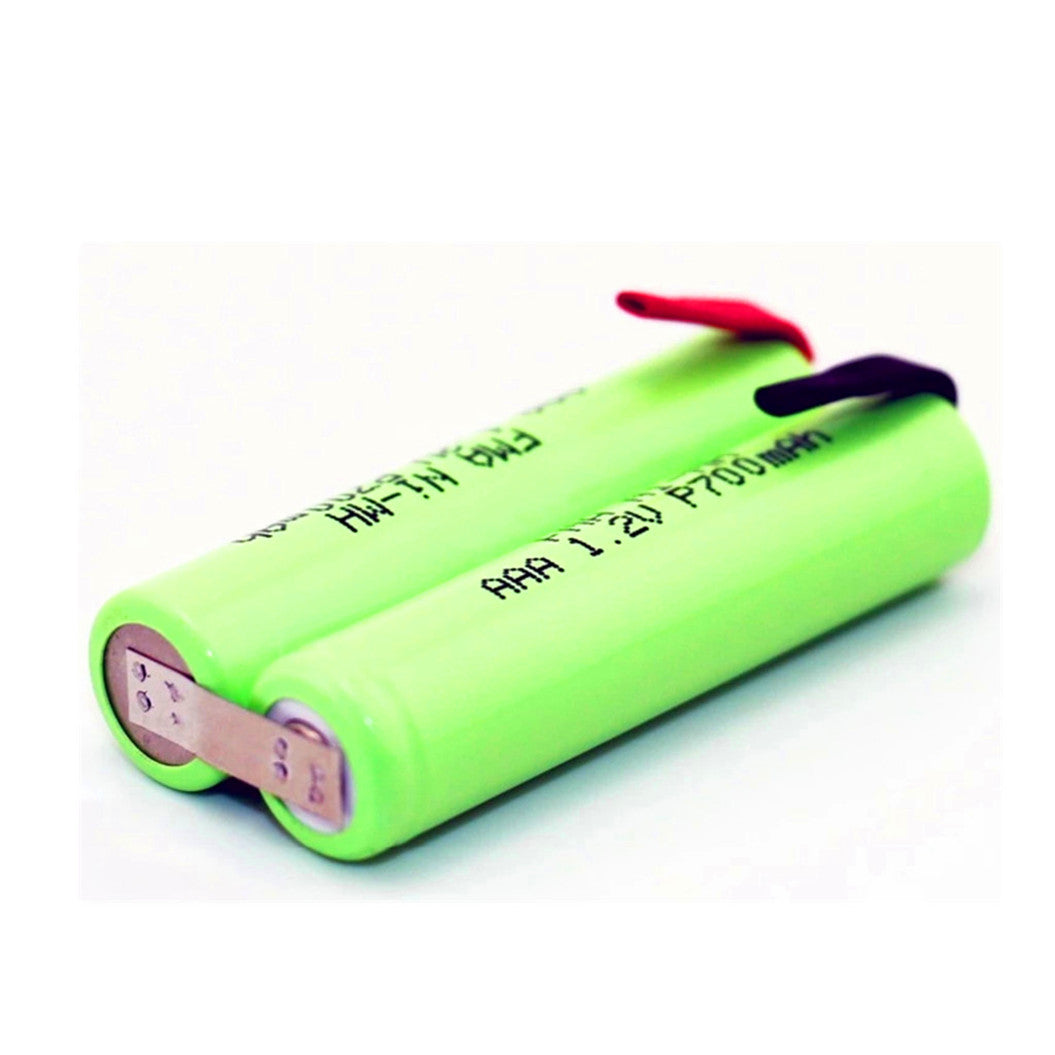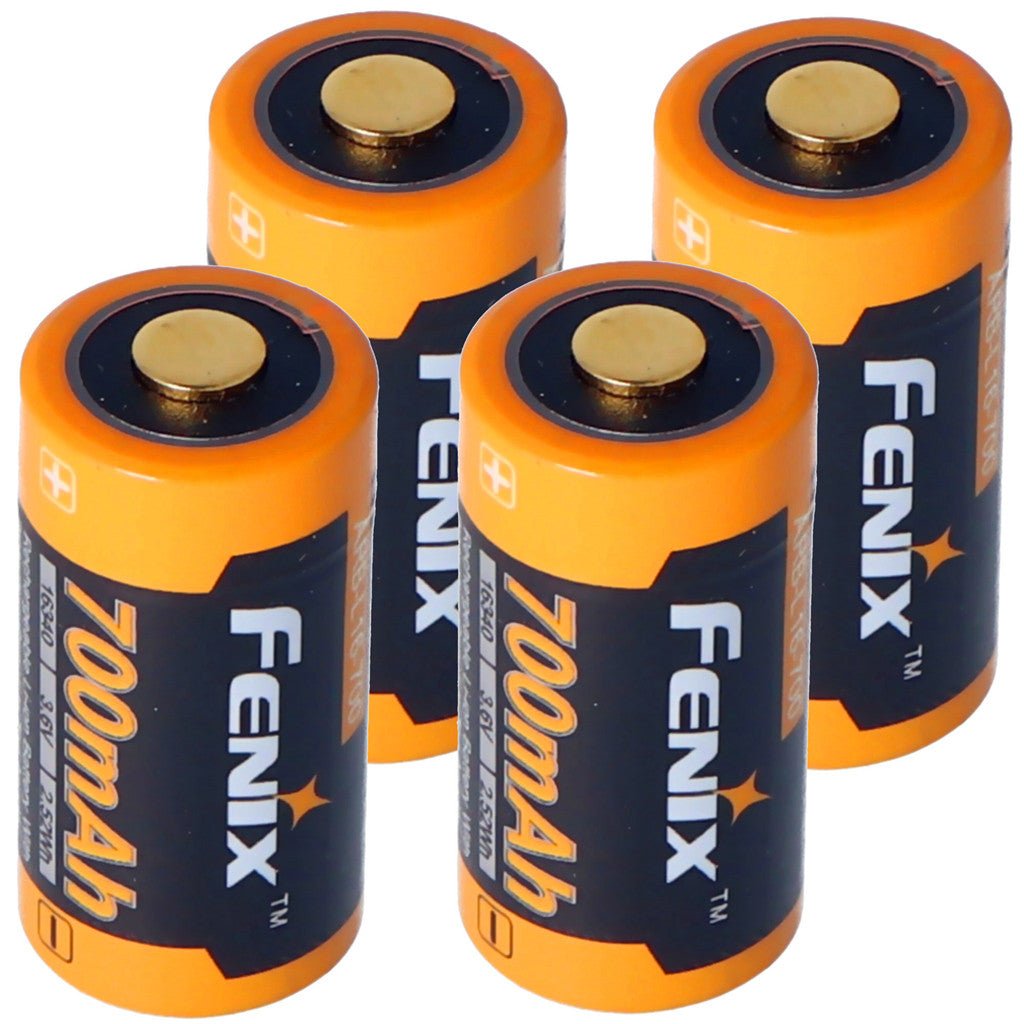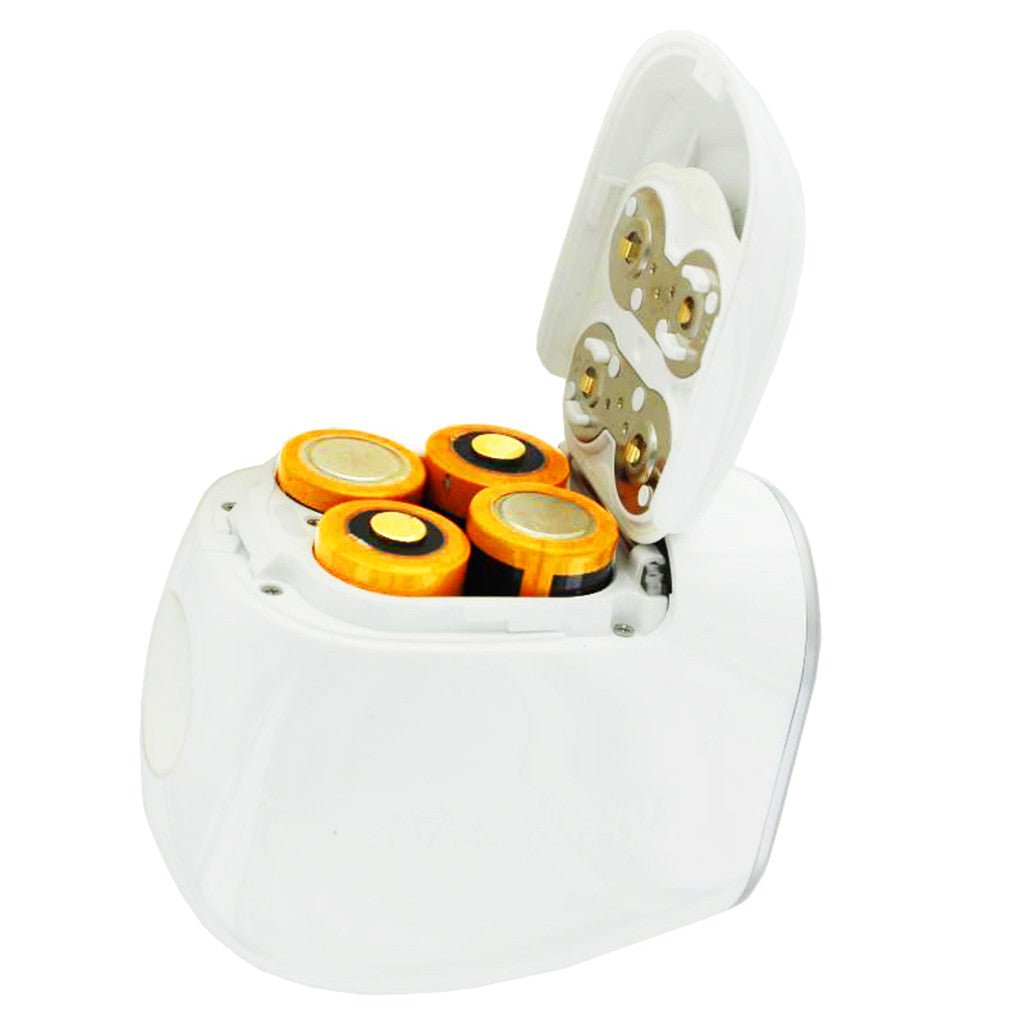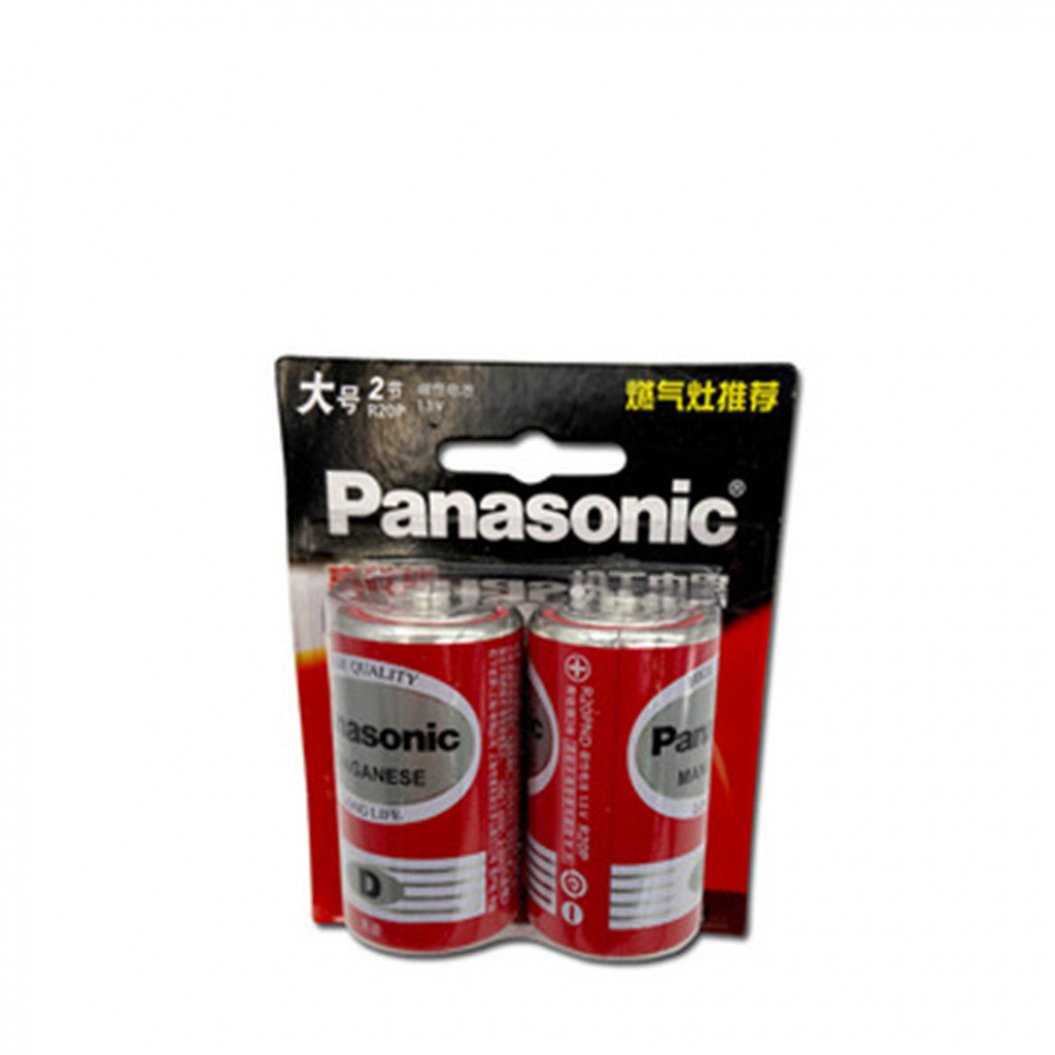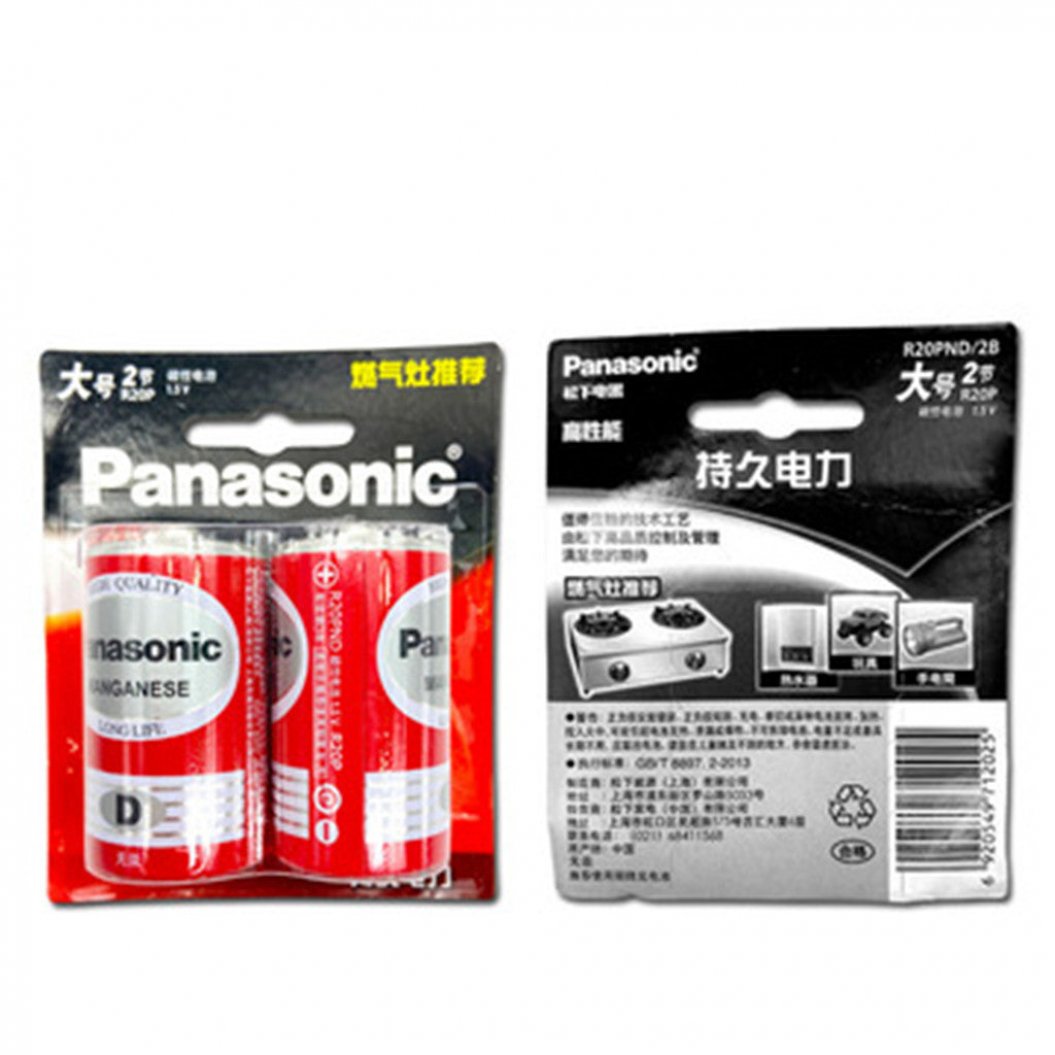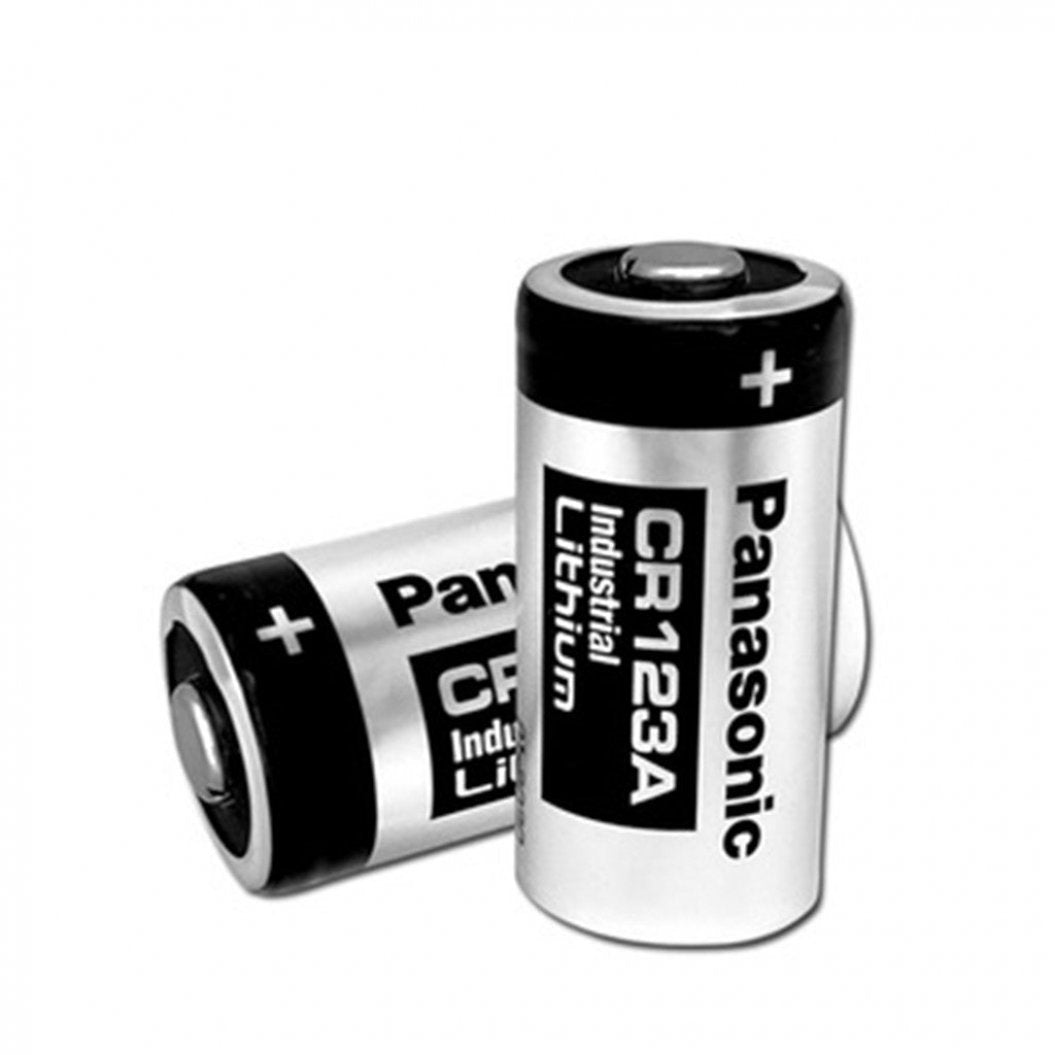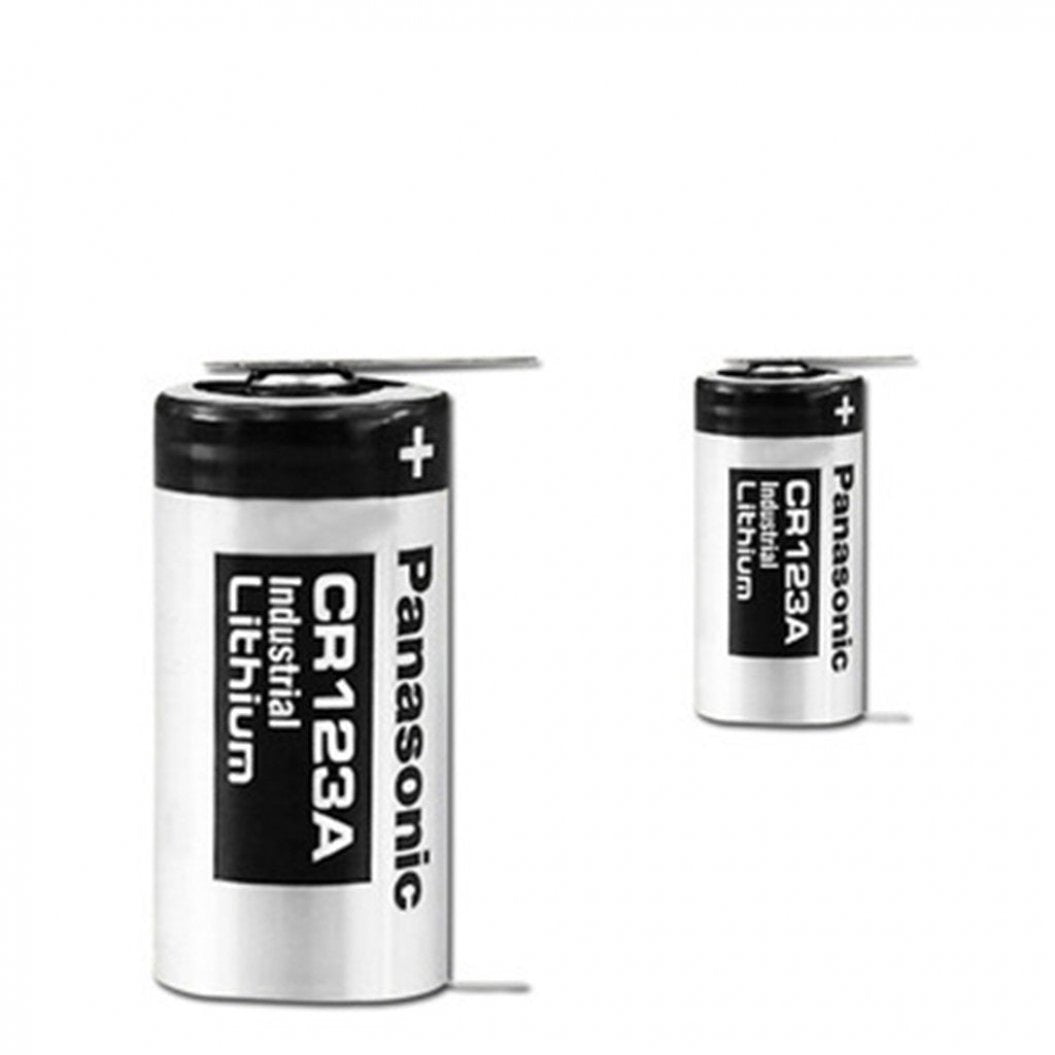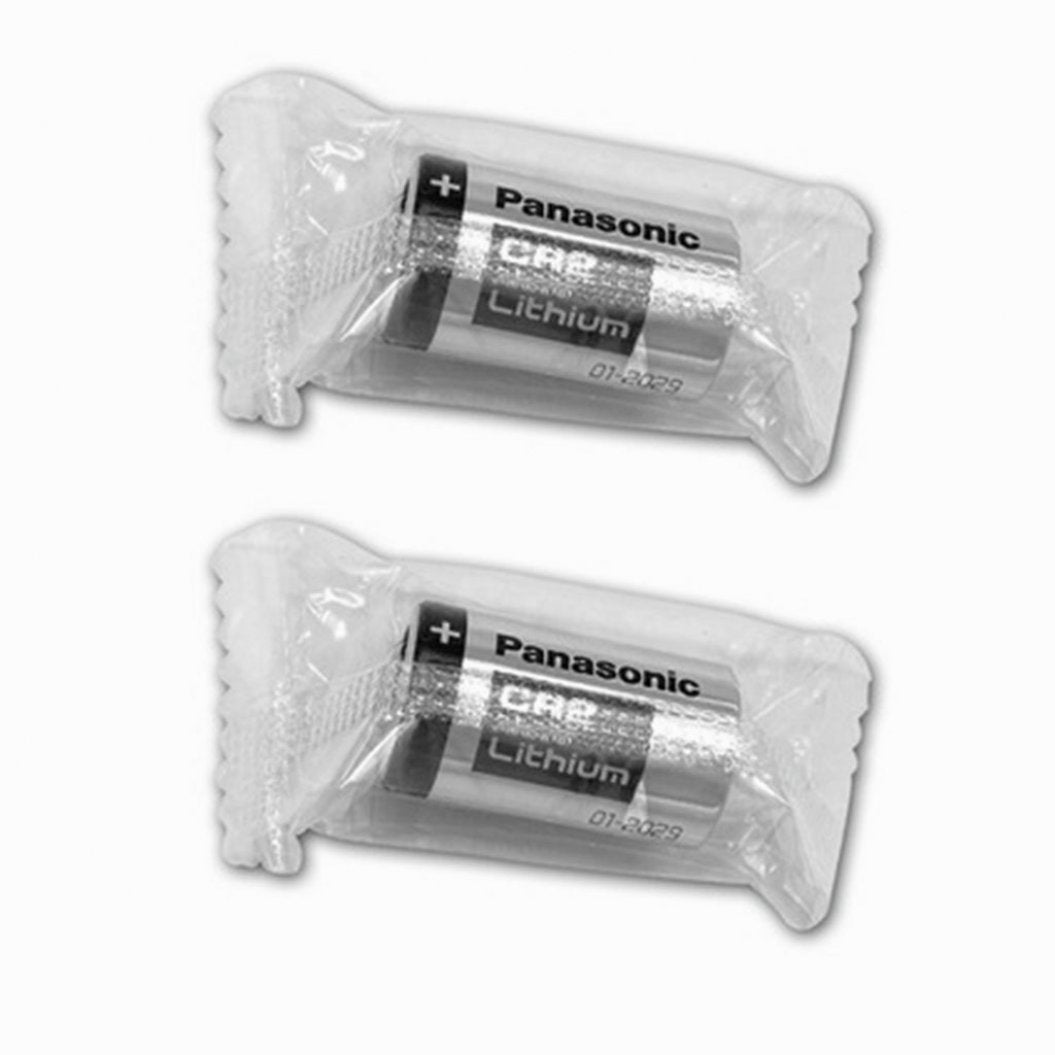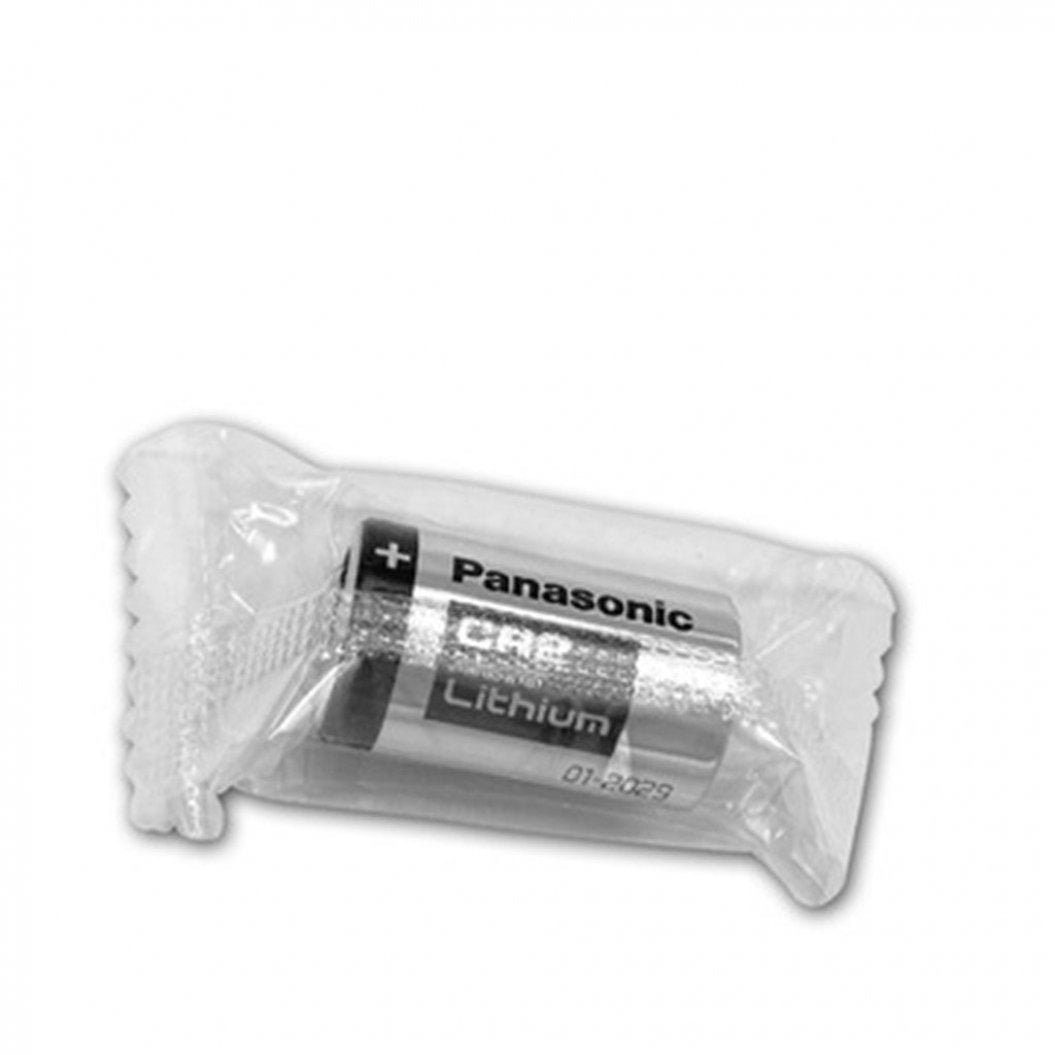-
販売元:BATTERYINT
オリジナル輸入品 Maxell ER6C AA 3.6V F2-40BL Mitsubishi FX2N 1N PLC プログラマーバッテリー
- 通常価格
- $10.99
- 通常価格
-
- セール価格
- $10.99
- 単価
- あたり
オリジナル輸入品 Maxell ER6C AA 3.6V F2-40BL Mitsubishi... -
販売元:BATTERYINT
3.0V 20mAh VL2020-1HF ボタン電池 バナジウムリチウム充電式バッテリー
- 通常価格
- $5.99
- 通常価格
-
- セール価格
- $5.99
- 単価
- あたり
3.0V 20mAh VL2020-1HF ボタン電池 バナジウムリチウム充電式バッテリー 製... -
販売元:BATTERYINT
2個セット 3V バッテリー Maxell CR2450HR FX3U-32BL タッチスクリーン GT11-50BAT 三菱 FX3U/5U 用
- 通常価格
- $7.99
- 通常価格
-
- セール価格
- $7.99
- 単価
- あたり
2個セット 3V バッテリー Maxell CR2450HR FX3U-32BL タッチスクリ... -
販売元:BATTERYINT
2本セット VL2020 / HFN 3V バッテリー 90°ピン 輸入オリジナル正規品
- 通常価格
- $13.99
- 通常価格
-
- セール価格
- $13.99
- 単価
- あたり
2本セット VL2020 / HFN 3V バッテリー 90°ピン 輸入オリジナル正規品 製品... -
販売元:BATTERYINT
16個セット ER14250 1/2 AA 3.6V 1200mAh LiSOCL2 リチウムバッテリー(ガス・水道・溶接メーター用)
- 通常価格
- $38.19
- 通常価格
-
- セール価格
- $38.19
- 単価
- あたり
16個セット ER14250 1/2 AA 3.6V 1200mAh LiSOCL2 リチウム... -
販売元:BATTERYINT
1.2V 1100mAh ニッケル水素バッテリー パナソニック WES7038L2506 2508、ES7101、ES7102、ES7109、ES7036、ES7038
- 通常価格
- $18.99
- 通常価格
-
- セール価格
- $18.99
- 単価
- あたり
1.2V 1100mAh ニッケル水素バッテリー パナソニック WES7038L2506 25... -
販売元:BATTERYINT
2.4V 700mAh Ni-MH バッテリー YS534 / 17 Water Pik WP-900 Remington バルバトリマー シェーバー用
- 通常価格
- $10.89
- 通常価格
-
- セール価格
- $10.89
- 単価
- あたり
2.4V 700mAh Ni-MH バッテリー YS534 / 17 Water Pik WP... -
販売元:BATTERYINT
4PCS 3.7V 700mAh Lithium Arlo 充電式バッテリー AccuCell ボックス付き
- 通常価格
- $42.99
- 通常価格
-
- セール価格
- $42.99
- 単価
- あたり
4PCS 3.7V 700mAh Lithium Arlo 充電式バッテリー AccuCell... -
販売元:BATTERYINT
8個 1.5V R20PND カーボンハイキャパシティ 大型D電池 小型家電用
- 通常価格
- $11.99
- 通常価格
-
- セール価格
- $11.99
- 単価
- あたり
8個 1.5V R20PND カーボンハイキャパシティ 大型D電池 小型家電用 商品情報 モ... -
販売元:BATTERYINT
2個セット 3V リチウムバッテリー CR123A ハンダフットバッテリー 小型家電用
- 通常価格
- $8.99
- 通常価格
-
- セール価格
- $8.99
- 単価
- あたり
2個セット 3V リチウムバッテリー CR123A ハンダフットバッテリー 小型家電用 製品情... -
販売元:BATTERYINT
2個セット 3V 850mAh 円筒型バッテリー CR2 CR15H270 用 レンジファインダー・ポラロイド対応
- 通常価格
- $8.99
- 通常価格
-
- セール価格
- $8.99
- 単価
- あたり
2個セット 3V 850mAh 円筒型バッテリー CR2 CR15H270 用 レンジファイン... -
販売元:BATTERYINT
4個 3V 1550mAh 円筒形バッテリー CR123A キャンディパック バッテリー CR17345 カメラ、機器、メーター用
- 通常価格
- $11.99
- 通常価格
-
- セール価格
- $11.99
- 単価
- あたり
4個 3V 1550mAh 円筒形バッテリー CR123A キャンディパック バッテリー CR...
ショーイング 25 -36 の 79 項目
1. What Is an Industrial Battery?
An industrial battery is a power storage device used in large equipment and industrial applications. These batteries are designed to provide long-lasting energy to support heavy machinery, emergency power systems, and other high-demand equipment.
Unlike common consumer batteries, industrial batteries offer greater capacity and longer life. They typically use lead-acid, nickel-cadmium, or lithium-ion technology to accommodate different environmental and operational requirements.
Unlike common consumer batteries, industrial batteries offer greater capacity and longer life. They typically use lead-acid, nickel-cadmium, or lithium-ion technology to accommodate different environmental and operational requirements.
2. Is There a Difference Between Industrial Batteries and Regular Batteries?
There are several key differences between industrial and conventional batteries. Firstly, industrial batteries, such as industrial lithium batteries, typically have a larger size and capacity. Second, they are more durable and reliable than conventional batteries, and able to withstand extreme environments and frequent charge/discharge cycles.
Additionally, industrial batteries are designed and materials selected to meet the stringent requirements of specific industrial applications, whereas conventional batteries are more commonly used in everyday consumer electronics.
Additionally, industrial batteries are designed and materials selected to meet the stringent requirements of specific industrial applications, whereas conventional batteries are more commonly used in everyday consumer electronics.
3. Do Industrial Batteries Last Longer?
Yes, industrial batteries, including industrial AA batteries, typically last longer than conventional batteries. This is because industrial batteries use more durable materials designed to handle continuous operation and heavy loads.
As a result, industrial batteries tend to be superior in terms of durability and affordability over the long term, despite their higher initial cost.
As a result, industrial batteries tend to be superior in terms of durability and affordability over the long term, despite their higher initial cost.
4. How Many Times Can an Industrial Battery Be Recharged?
The number of charge/discharge cycles for industrial batteries depends largely on the battery type.
For example, industrial lithium batteries can perform about 500 to 1,500 charge/discharge cycles, while nickel-cadmium batteries can usually withstand about 500 to 1,000 cycles.
Lithium-iron-phosphorus (LiFePO4) batteries perform even better in terms of charge/discharge performance, reaching 2,000 to 5,000 cycles.
For example, industrial lithium batteries can perform about 500 to 1,500 charge/discharge cycles, while nickel-cadmium batteries can usually withstand about 500 to 1,000 cycles.
Lithium-iron-phosphorus (LiFePO4) batteries perform even better in terms of charge/discharge performance, reaching 2,000 to 5,000 cycles.
5. How Do You Charge an Industrial Battery?
To properly charge an industrial battery, you can follow these steps:
- Ensure that the charger used is matched to the type of industrial battery. Keep the voltage and current settings of the charger meet the specifications of the industrial battery packs.
- Adhere to the manufacturer's instructions during the charging process. Avoid risks such as overcharging which can damage the industrial batteries.
- Regularly check the condition of both the battery and the charger. This ensures that the charging process is efficient and safe.
- Ensure that the charger used is matched to the type of industrial battery. Keep the voltage and current settings of the charger meet the specifications of the industrial battery packs.
- Adhere to the manufacturer's instructions during the charging process. Avoid risks such as overcharging which can damage the industrial batteries.
- Regularly check the condition of both the battery and the charger. This ensures that the charging process is efficient and safe.
6. How Do You Store Industrial Battery?
If you are not using industrial batteries, you can store them in these ways:
- Industrial batteries should be stored in a dry, well-ventilated environment. They must be protected from temperature extremes and direct sunlight to prevent damage.
- Charge industrial battery packs to the recommended state before storage, typically maintaining a 50 to 80 percent charge level. This helps prevent over-discharge and prolongs the battery life.
- It is crucial to regularly check the battery’s charge level and overall health. This ensures the battery will continue to perform well when put back into service.
- Industrial batteries should be stored in a dry, well-ventilated environment. They must be protected from temperature extremes and direct sunlight to prevent damage.
- Charge industrial battery packs to the recommended state before storage, typically maintaining a 50 to 80 percent charge level. This helps prevent over-discharge and prolongs the battery life.
- It is crucial to regularly check the battery’s charge level and overall health. This ensures the battery will continue to perform well when put back into service.
7. Can Industrial Batteries Be Customised?
Yes, industrial batteries, including industrial aa batteries, can be customized to meet specific needs. We typically offer a variety of configuration options, including battery size, shape, voltage, capacity, and connection methods to suit different industrial applications and equipment needs.
Additionally, customers can choose a specific battery technology, such as lead-acid, nickel-cadmium, or lithium-ion, to meet specific size, performance, and durability requirements.
Additionally, customers can choose a specific battery technology, such as lead-acid, nickel-cadmium, or lithium-ion, to meet specific size, performance, and durability requirements.

